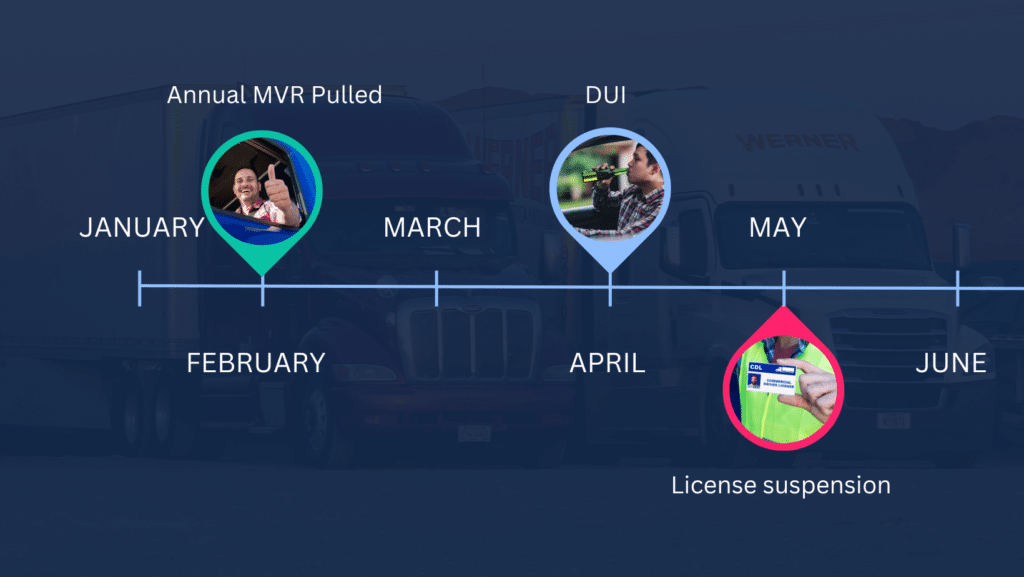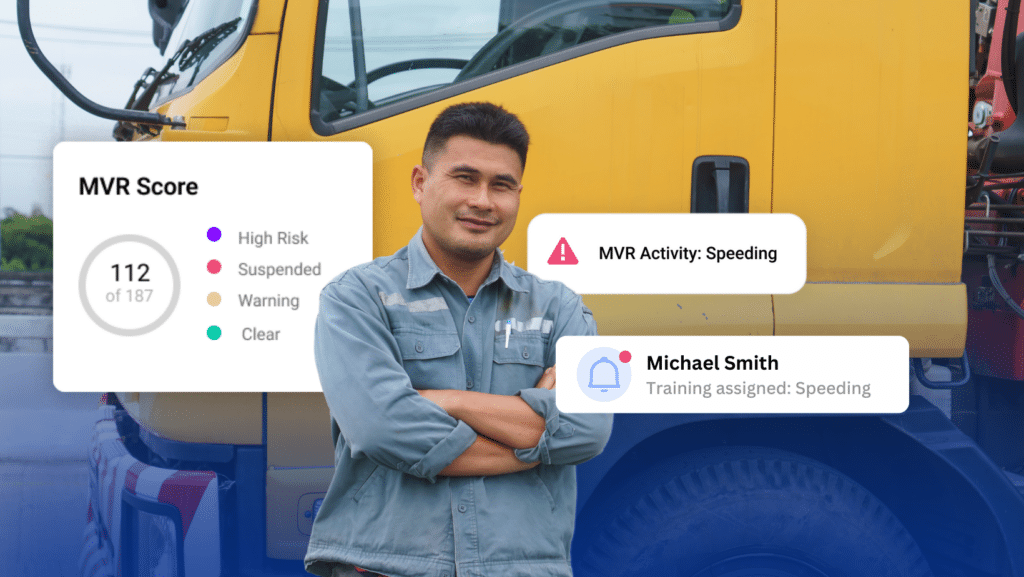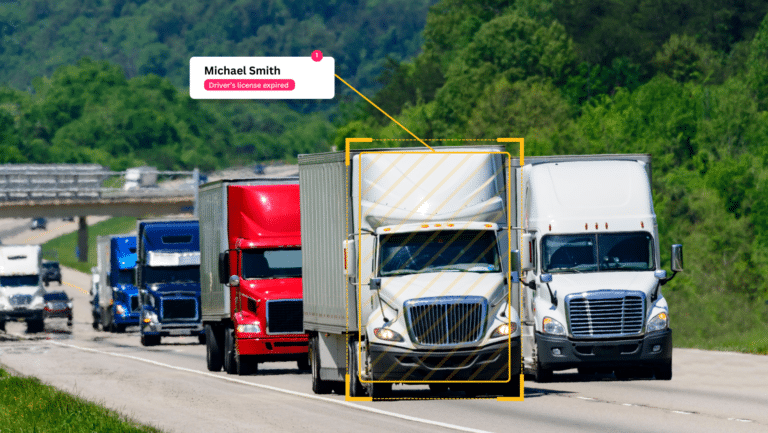5 MVR Background Check Mistakes Employers Make

When it comes to hiring and managing drivers, a simple oversight in the MVR background check process could cost your business big. From missed violations to unqualified drivers, these critical insights can lead to accidents, legal issues, and compliance headaches. But don’t worry—many of these pitfalls are easy to avoid with the right knowledge and tools. Keep reading to uncover the five most common MVR background check mistakes and how to steer clear of them.
Common MVR Background Checks Mistakes
1. Relying Just on Annual MVR Pulls
One of the most common mistakes employers make with MVR background checks is only pulling them annually. While this was the norm for years, more companies realize it’s not enough to catch and address driver issues early. Drivers can accumulate violations, be involved in traffic incidents, or have their licenses suspended in the months between annual checks—all without the employer knowing. This leaves businesses vulnerable to significant risks, both in terms of safety and liability.

If a driver causes an accident and their record reveals prior violations or a suspension that wasn’t caught because you were only pulling MVRs annually, your company may still be liable. Accident lawsuits can include punitive damages for negligent hiring or retention practices. This can amount to millions of dollars, depending on the severity of the accident. Read more: Nuclear Verdicts: How To Reduce Exposure?
2. Ignoring Minor Violations
When performing an MVR background check, employers often overlook “minor” infractions, assuming they don’t significantly impact safety. However, these seemingly small violations can be early warning signs of larger issues. When left unchecked, they can accumulate and reveal a pattern of risky driving behavior that puts your fleet at greater risk of accidents.
Studies show that drivers with frequent minor violations are more likely to be involved in serious incidents down the road. According to the National Highway Traffic Safety Administration (NHTSA), speeding was a factor in 29% of all traffic fatalities in 2022.
3. Not Verifying License Types and Endorsements
Managers sometimes assume that drivers have the proper licenses or endorsements to operate specific vehicles without actually checking the details. This can lead to costly compliance issues and unsafe drivers on the road.
This MVR background check oversight can lead to severe compliance issues and unsafe drivers on the road. For instance, if a driver lacks the correct Commercial Driver’s License (CDL) classification or proper endorsements—such as those required for hazardous materials or passenger transport—they may not be legally qualified to operate the vehicle.
The Federal Motor Carrier Safety Administration (FMCSA) reports that nearly 14% of companies face fines each year for failing to ensure that drivers have the correct license endorsements for the vehicles they operate. Read more: Avoid These Top FMCSA Violations With MVR Monitoring
4. Failing to Act on Red Flags
Delaying action can expose your company to significant legal and safety risks. It’s not just about performing an MVR background check; it’s about taking proactive measures to ensure driver safety and compliance.
If a driver causes an accident, your company could face liability for negligence, especially if you knew about the violations but failed to address them.
Beyond removing high-risk drivers from the road, clear procedures for addressing these red flags are crucial. This includes offering targeted driver training to improve their driving behavior, having a well-established vehicle policy, and constant reminders and messages about safety.
5. Overlooking Regular MVR Review During Employment
MVR background checks are an important part of the pre-hire evaluation process. However, proactively managing driver safety doesn’t end with the hiring process. A driver’s record can change at any time after employment. Failing to review their MVR regularly can lead to missed violations, which may affect safety, insurance rates, and compliance.
According to ATRI, drivers with violations are three times more likely to be involved in an accident than those with clean records.
Remove the guesswork with MVR Monitoring
You’ve already learned about the common mistakes with MVR background checks, and now you might wonder how to minimize your risk.
MVR Monitoring effectively addresses common mistakes in the background check process by providing near real-time updates and automatic scores to driving records. This approach eliminates the pitfalls of relying solely on annual checks, ensuring that employers can quickly identify new violations and changes in driver status. It highlights all infractions, including minor violations, allowing for early intervention and training.

Additionally, MVR Monitoring verifies that drivers are operating with valid licenses and medical cards. By integrating ongoing reviews into the employment process, employers can maintain compliance and enhance safety, ultimately reducing the risk of accidents and liability.
Stay Ahead of Risks with Continuous Monitoring
MVR background checks are critical to managing your fleet’s safety and ensuring compliance, but they’re only effective when done correctly. Avoid these five common mistakes by adopting continuous MVR monitoring technology, acting on violations, and ensuring your drivers are fully licensed and qualified.
To learn more, contact us o or watch our demo video below.
*We are not lawyers. Consult with your legal counsel to ensure your processes and procedures meet/ or exceed safety standards and compliance regulations. Please read our legal disclaimer.






